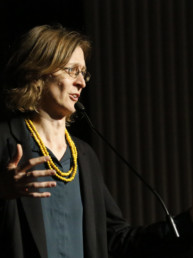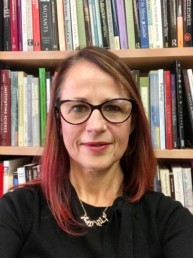Bios
Oron Catts & Ionat Zurr
Award winning artists, researchers and curators, Catts and Zurr formed the internationally renowned Tissue Culture & Art Project in 1996. Catts is the Co-Founder and Director of SymbioticA: the Centre of Excellence in Biological Arts, School of Human Sciences at the University of Western Australia (UWA) and was a Professor of Contestable Design at the Royal College for the Arts UK. Dr Ionat Zurr is a researcher and lecturer at the School of Design UWA and SymbioticA’s academic co-ordinator. Both are Visiting Professor at Biofilia – Based for Biological Arts, Aalto University, Finland (2015-2020). They have been visiting scholars at The Centre of Arts and Art History at Stanford University (2007) and Research Fellows at The Tissue Engineering & Organ Fabrication Laboratory, Harvard Medical School (2000-2001).
Catts & Zurr’s interest is Life, more specifically the shifting relations and perceptions of life in the light of new knowledge and its applications. Often working in collaboration with other artists and scientists, they have developed a body of work that speaks volumes about the need for new cultural articulations of evolving concepts of life. They are considered pioneers in the field of Biological Arts; they publish widely and exhibit internationally. Their work was exhibited and collected by museums such as Pompidou Centre in Paris, MoMA NY, Mori art Museum, NGV, GoMA, Yerba Buena Center for the Arts, San Francisco, Ars Electronica, National Art Museum of China and more. Their research was covered by The NY Times, Washington Post, Wired, New Scientist, Time, Newsweek, Nature, Science, and other TV, radio, print and online media.
Catts & Zurr ideas and projects reach beyond the confines of art; their work is often cited as inspiration to diverse areas such as new materials, textiles, design, architecture, ethics, fiction, and food.
Sarah Collins has published widely on the relationship between music aesthetics and broader intellectual and political currents in the late-nineteenth and early-twentieth centuries. She is the author of Lateness and Modernism: Untimely Ideas about Music, Literature and Politics in Interwar Britain (Cambridge UP, 2019), and The Aesthetic Life of Cyril Scott (Boydell, 2013); editor of Music and Victorian Liberalism: Composing the Liberal Subject (Cambridge UP, 2019); and co-editor with Paul Watt and Michael Allis of The Oxford Handbook of Music and Intellectual Culture in the Nineteenth Century (Oxford UP, 2020). Her research has appeared in the Journal of the Royal Musical Association, Twentieth-Century Music, Music & Letters, Musical Quarterly and elsewhere. Sarah lectures in musicology at the University of Western Australia Conservatorium of Music, where she is Associate Professor and Deputy Head of School (Research). She has held visiting fellowships at Harvard University, the University of Oxford and Durham University, and has received competitive research funding from a range of sources including the British Academy, the European Commission, and the Australian Research Council.
Elizabeth Stephens is an Australian Research Council Future Fellow and Associate Professor of Cultural Studies in the Institute for Advanced Studies in the Humanities at the University of Queensland. She is the author of three monographs: Normality:A Critical Genealogy (University of Chicago Press 2017), co-authored with Peter Cryle; Anatomy as Spectacle: Public Exhibitions of the Body from 1700 to the Present (Liverpool University Press 2011); and Queer Writing: Homoeroticism in Jean Genet’s Fiction (Palgrave 2009). Her Future Fellowship examines practices of experimentation as a site of collaboration between the arts and sciences, from the nineteenth-century scientific laboratory to contemporary experimental art.



